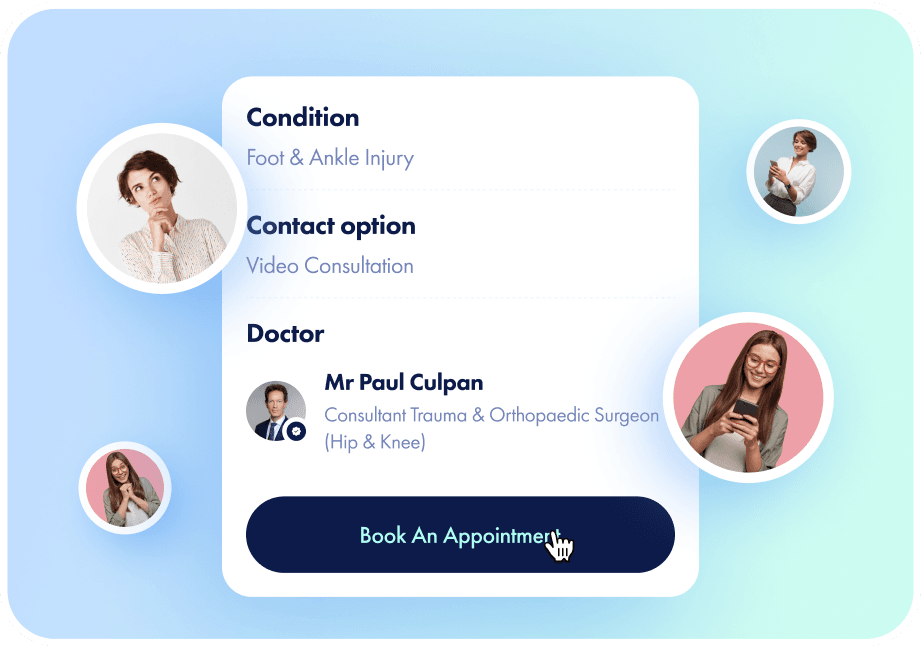
Conveniently reserve your spot with just a few clicks through our easy-to-use online booking system.


Dementia is a broad term used to describe a decline in cognitive function that interferes with daily life. It's not a normal part of ageing, although the risk does increase with age. While there's currently no cure for dementia, early diagnosis and management can significantly improve quality of life for both patients and caregivers. If you're concerned about yourself or a loved one experiencing memory loss, confusion, or personality changes, it's important to seek medical advice to explore potential causes and treatment options.
You are not required to provide a referral letter from your doctor or GP.
Start a visit quickly and discreetly whenever works best for you.
Our doctors review symptoms, prescribe treatments if needed.
Proceed with your healthcare journey as you wish. You're in control.
You control medical records, access anytime.
Dementia symptoms vary widely from patient to patient. Different types of dementia affect people differently too. However, there are some symptoms common in most dementia cases, such as:
Changes in behaviour and personality
Difficulty concentrating and learning
Problems with writing, speaking, or reading certain words
Confusion with time and place
Poor judgement and reasoning
Difficulty completing familiar or everyday tasks
Memory loss and remembering things wrong
Mood swings
Poor visual perception
Withdrawal from social interactions
It can be difficult to notice these symptoms or take them seriously. So, it’s important to take a professional dementia assessment as soon as there’s any cause for worry. To diagnose dementia, a neuropsychologist or geriatric psychiatrist conducts several tests on the patient, including mental ability assessments, brain scans, lab tests, and psychiatric evaluations.
Сontact us to schedule an appointment or learn more
Conveniently reserve your spot with just a few clicks through our easy-to-use online booking system.
Have a question or request? Drop us a message, and our team will get back to you promptly.
Feel free to give us a call, and our friendly staff will be glad to assist you over the phone.
From Home or Face to Face, all at your convenience
Schedule a Video Consultation or a Face-to-Face appointment at your convenience by using our online booking system.
Schedule a Video Consultation or a Face-to-Face appointment at your convenience by using our online booking system.
Your dedicated Specialist Doctor will provide you with personalized treatment, tailoring it to your specific needs, and may include necessary medication.
Dementia is not a single disease. There are over 100 illnesses and health conditions that can lead to dementia. The most common causes and types of dementia are:
Alzheimer’s Disease
Alzheimer’s is the leading cause of dementia in the UK, accounting for about 60% of all dementia cases. It’s a complex physical disease that damages the brain, impairing the patient’s memory, thinking, and behaviour. Alzheimer’s disease is caused by the buildup of amyloid and tau inside the brain. These two substances form plaques and tangles that damage the brain and compromise its functions.
Lewy Body Disease
This is the second most common cause of dementia. Lewy bodies are microscopic structures composed of alpha-synuclein proteins associated with Parkinson’s disease. They build up in the brain and damage nerve cells, causing memory, thinking, and movement problems.
Vascular Dementia
Vascular dementia develops as a result of brain damage caused by blood flow issues, usually heart disease or stroke. A stroke, or brain attack, happens when something blocks the blood supply to the brain or a blood vessel bursts in the brain. There are several sub-types of vascular dementia, depending on the cause and the affected part of the brain.
Frontotemporal Dementia
The term “frontotemporal dementia” describes a group of neurological disorders that affect the brain’s frontal and temporal lobes. These are regions of the brain associated with behaviour, language, and personality. Those with frontotemporal dementia may exhibit profound behavioural changes and difficulty with speech and language. The cause of the disease is unclear, but research suggests it’s linked to genetic disorders and mutations.
Alcohol-Related Dementia
Excessive and prolonged alcohol consumption can lead to dementia. Alcohol can gradually damage the brain regions responsible for memory, learning, perception, movement, and speech. Wernicke-Korsakoff syndrome is a common example of dementia-causing alcohol-related brain damage (ARBD).
Chronic Traumatic Encephalopathy (CTE) Dementia
CTE is a neurological condition primarily caused by repeated trauma to the head and brain. Blunt blows to the head can gradually and irreversibly damage the brain. If those injuries affect the brain areas involved with memory, thinking, reasoning, or behaviour, the patient might develop some form of dementia.
Childhood Dementia
This is a type of young-onset dementia that affects children. Childhood dementia is quite rare; its incidence rate in the UK is only 1 in 2,900 births. The disease is caused by progressive brain damage linked to over 100 rare genetic disorders.
Mixed Dementia
One or more types of dementia may manifest in the brain at the same time. For instance, a person with Alzheimer’s disease may also have Lewy body dementia. It’s not always apparent that a person has mixed dementia because the symptoms usually overlap. However, mixed dementia often progresses faster than any single form of dementia.
Our facilities are regularly inspected to ensure compliance with the highest industry standards.
Quick access to parking and
public transport
Helpful, accommodating staff
Comfortable and
calming environment









